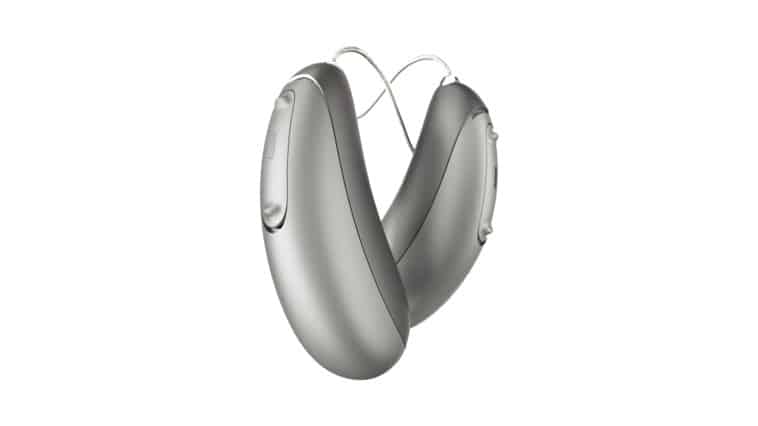0% financing available. Up to 3-year loss and damage guarantee.

Addressing Hearing Loss in Older Adults
- Navigating the Conversation: The Significance of Thoughtful Disclosure in Hearing Loss - December 10, 2023
- The Sound of Dreams: Understanding How Hearing Loss Impacts Dreaming - November 7, 2023
- Traveling Effectively with Hearing Aids - October 16, 2023
Our reliance and presumption of the intricate process of hearing can leave us vulnerable. The World Health Organization (WHO) estimates 900 million people worldwide will suffer from hearing loss by 2050.
We rely on our hearing to avoid hazardous situations with traffic or construction to connecting with others in social situations via conversation, going to concerts and sporting events. There is a myriad of reasons come into play when we address the loss of hearing. We need to take into account our genetics, medical conditions, accidents, medications, infections, and environmental factors. Living in a densely urban area with construction as opposed to a sprawling rural one, attending loud concerts, using earbuds to listen to music at high levels and of course, the natural process of aging that all contribute in hearing decline.
The process of hearing
Listening is our ability to hear with intent but what actually is hearing? Our ears turn sound waves into electrical impulses and the journey begins with our ears and ends with our perception and interpretation of them by the brain. Hearing requires the three main parts of the entire ear to function successfully: the outer, middle, and inner ear.
The visible parts of the ear to the ear canal to the eardrum create a grouping known as the outer ear, and serves as a station where sound is funneled. The middle ear is equipped with three, small vital bones known as ossicles, that transform and transport sound into the inner ear. We cannot hear well without this crucial part of the journey being successful. Upon reaching the cochlear of the inner ear, the lining of minute hair cells or stereocilia are put into motion via the vibration of the sound waves. The resulting movement through fluid in the cochlear creates electrical signals to a nerve directly connected to the brain for interpretation which results in our hearing. It is at the end of the journey from the outer ear to the brain when we hear the ring of an alarm clock or the turn of a key.
A breakdown in any part of the complex journey of sound will affect our ability to interpret sound and speech. As we get older, it is most often the deterioration of cells affecting the cochlear that spurs on hearing loss. but there many other mitigating factors from levels of cognitive activities to medications to environment and diet.
Hearing loss and dementia
Experts do agree that there is a direct correlation between untreated hearing loss and dementia. With untreated hearing loss, people face difficulties with speech recognition, and as a result, they tend to withdraw from their social lives and avoid communication and contact. Lack of social and cognitive activities are associated with an increased risk for dementia and can have devastating effects on an increasingly aging population.
Living with hearing loss
We have many options available to us to help alleviate or even rectify impaired hearing. We need only to gather information and be active in restoring our hearing health. It is possible with the aid of hearing devices and cochlear implants that many of us no longer need to accept a life with debilitated hearing and a lack of social interaction. There is also ongoing medical research and breakthroughs in medications, drug and gene therapies and the continued refining of hearing devices and technologies.
How can technology help you?
Hearing aids are needed by a larger percentage of people than is realized. Around 80 percent of those needing hearing aids go without due to negative preconceptions, unawareness or cost. Those that do attend to their hearing needs often adopt hearing aids and with continual adjustments of and to the devices, they can maintain or alleviate their hearing health.
Today we have the options of attending large performance spaces and religious institutions with specialized induction systems designed for the hearing impaired. Amplification devices for our telephone and mobile phones, as well as apps for our smart phone or tablet are readily available on the market to assist us.
Hearing loss prevention and maintenance
A hearing evaluation should be as routine as your yearly physical. Hearing loss can be quite gradual and therefore difficult for us to acknowledge until it becomes detrimental. It is necessary to stay vigilant and get tested.
One rule of thumb is to stay away from loud noises from lawn mowers to fireworks and carry earplugs with you in case you find yourself in an unavoidable situation. The longer you are exposed to higher decibels, the more damage is caused to your hearing.
Advanced Tech Hearing Aid Center
If you are over the age of 50, hearing specialists recommend an annual hearing test. An annual hearing test helps you keep track of your hearing abilities, and if a hearing loss is detected, we can help you find the best treatment solution for your needs. Contact us at Advanced Tech Hearing Aid Center today to schedule an appointment!

